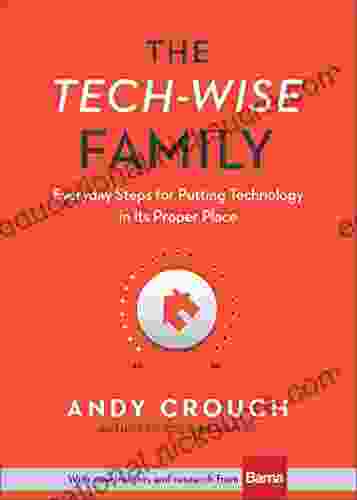Essentials of Correctional Nursing: A Guide for Healthcare Professionals

Correctional nursing is a specialized field within the healthcare profession that focuses on providing care to individuals who are incarcerated in correctional institutions. It encompasses a wide range of responsibilities, from providing routine medical care to addressing the unique healthcare needs of this population.
4.6 out of 5
| Language | : | English |
| File size | : | 6447 KB |
| Text-to-Speech | : | Enabled |
| Screen Reader | : | Supported |
| Enhanced typesetting | : | Enabled |
| Print length | : | 405 pages |
Working as a correctional nurse requires a comprehensive understanding of the ethical, legal, and practical aspects of this field. This article will provide an overview of the essentials of correctional nursing, including the ethical considerations, challenges, and rewards of this specialized practice.
Ethical Considerations in Correctional Nursing
Correctional nurses are faced with a unique set of ethical challenges that require careful consideration and ethical decision-making. One of the primary ethical issues in correctional nursing is the balance between providing care and maintaining security.
Correctional nurses have a duty to provide safe and effective care to their patients, regardless of their criminal background or current incarceration status. However, they must also adhere to the security protocols and procedures of the correctional institution to ensure the safety of both staff and inmates.
Other ethical considerations in correctional nursing include:
- Confidentiality and privacy: Correctional nurses must maintain the confidentiality of patient information while also complying with reporting requirements and legal obligations.
- Informed consent: Obtaining informed consent from patients in a correctional setting can be challenging due to power imbalances and potential coercion.
- End-of-life care: Correctional nurses must navigate the ethical and legal complexities of providing end-of-life care to incarcerated individuals.
Challenges and Rewards of Correctional Nursing
Correctional nursing is a demanding field that presents both challenges and rewards. Some of the challenges correctional nurses commonly face include:
- Limited resources: Correctional institutions often have limited resources, which can impact the availability of healthcare services and supplies.
- Patient population: The patient population in correctional institutions is unique and can present complex healthcare challenges, including mental illness, substance abuse, and chronic diseases.
- Safety and security: Correctional nurses must work in a secure environment, which can require additional training and safety precautions.
- High turnover: Correctional nursing can have a high turnover rate, which can impact continuity of care and staff morale.
Despite these challenges, correctional nursing also offers many rewards:
- Making a difference: Correctional nurses have the opportunity to make a positive impact on the lives of incarcerated individuals.
- Unique learning experience: Correctional nursing provides valuable experience in working with a diverse patient population and addressing complex healthcare challenges.
- Career advancement opportunities: Correctional nurses can pursue advanced education and leadership positions within the correctional healthcare system.
- Job stability: Correctional nursing positions are generally stable, with a consistent demand for qualified nurses.
Population and Healthcare Needs in Correctional Institutions
The population in correctional institutions is diverse and presents unique healthcare needs. The majority of incarcerated individuals are male, but the number of female inmates is growing. Racial and ethnic minorities are disproportionately represented in correctional institutions.
Incarcerated individuals often have higher rates of chronic diseases, mental illness, and substance abuse than the general population. They may also have limited access to healthcare services prior to incarceration and face barriers to healthcare during and after incarceration.
Common healthcare needs in correctional institutions include:
- Chronic diseases: Hypertension, diabetes, asthma, and heart disease are common chronic diseases among incarcerated individuals.
- Mental illness: Depression, anxiety, and post-traumatic stress disorder are prevalent among incarcerated individuals.
- Substance abuse: Many incarcerated individuals have a history of substance use and may need treatment for addiction.
- Infectious diseases: Incarcerated individuals are at increased risk for infectious diseases, such as HIV, hepatitis, and tuberculosis.
Legal Implications of Correctional Nursing
Correctional nursing is a highly regulated field, and nurses must be aware of the legal implications of their practice. Some of the key legal issues in correctional nursing include:
- Patient rights: Incarcerated individuals have the same rights to healthcare as individuals in the general population.
- Confidentiality: Correctional nurses must maintain the confidentiality of patient information, but there are exceptions to this rule, such as reporting suspected abuse or neglect.
- Informed consent: Correctional nurses must obtain informed consent from patients before providing treatment, but there may be instances where informed consent is not required, such as in an emergency situation.
- Use of force: Correctional nurses may be required to use force to protect themselves or others, but only as a last resort and in accordance with established protocols.
Correctional nursing is a challenging but rewarding field that requires a comprehensive understanding of the ethical, legal, and practical aspects of this specialized practice. Correctional nurses play a vital role in providing healthcare to incarcerated individuals and ensuring their well-being. They must be committed to providing compassionate and effective care while also adhering to the security protocols and legal requirements of the correctional institution.
As the correctional population continues to grow and diversify, the demand for qualified correctional nurses will increase. Individuals interested in a career in correctional nursing should be prepared to work with a complex patient population and navigate the unique challenges and rewards of this specialized field.
4.6 out of 5
| Language | : | English |
| File size | : | 6447 KB |
| Text-to-Speech | : | Enabled |
| Screen Reader | : | Supported |
| Enhanced typesetting | : | Enabled |
| Print length | : | 405 pages |
Do you want to contribute by writing guest posts on this blog?
Please contact us and send us a resume of previous articles that you have written.
 Fiction
Fiction Non Fiction
Non Fiction Romance
Romance Mystery
Mystery Thriller
Thriller SciFi
SciFi Fantasy
Fantasy Horror
Horror Biography
Biography Selfhelp
Selfhelp Business
Business History
History Classics
Classics Poetry
Poetry Childrens
Childrens Young Adult
Young Adult Educational
Educational Cooking
Cooking Travel
Travel Lifestyle
Lifestyle Spirituality
Spirituality Health
Health Fitness
Fitness Technology
Technology Science
Science Arts
Arts Crafts
Crafts DIY
DIY Gardening
Gardening Petcare
Petcare Andrew Thompson
Andrew Thompson Richard Twiss
Richard Twiss Susana Wald
Susana Wald Fatime Losonci
Fatime Losonci Chris Mcmullen
Chris Mcmullen Nick Estes
Nick Estes Dustin Howe
Dustin Howe Gary Todd
Gary Todd M J Abadie
M J Abadie Betty Smith
Betty Smith N S Wikarski
N S Wikarski Jamie Christian Desplaces
Jamie Christian Desplaces Loris Chen
Loris Chen Carolyn Coker Ross
Carolyn Coker Ross Marcos Romero
Marcos Romero Jen Benson
Jen Benson Michelle Madow
Michelle Madow Lisa Cron
Lisa Cron Dennis J Stanford
Dennis J Stanford Lynn Painter
Lynn Painter Carla Hannaford
Carla Hannaford Jaimal Yogis
Jaimal Yogis Gordon Churchill
Gordon Churchill Elizabeth Walter
Elizabeth Walter John R Anderson
John R Anderson E K Johnston
E K Johnston Tom Bertrand
Tom Bertrand Wendy Bryden
Wendy Bryden Vibrant Publishers
Vibrant Publishers Eddy Starr Ancinas
Eddy Starr Ancinas Carolyn Savage
Carolyn Savage Teresa Palmer
Teresa Palmer Brock Lesnar
Brock Lesnar J K Rowling
J K Rowling Kris Holloway
Kris Holloway Anne Marie Scully
Anne Marie Scully Ruth E Van Reken
Ruth E Van Reken Briana Wiles
Briana Wiles Kirk Goldsberry
Kirk Goldsberry Claire Ahn
Claire Ahn Luna Fox
Luna Fox Emily Wibberley
Emily Wibberley Eric H Cline
Eric H Cline Julie Lythcott Haims
Julie Lythcott Haims Emilie Bailey
Emilie Bailey William E Hearn
William E Hearn Geraldine Woods
Geraldine Woods Rachel Lynn Solomon
Rachel Lynn Solomon Jordan Ellenberg
Jordan Ellenberg John Lofty Wiseman
John Lofty Wiseman Becky Albertalli
Becky Albertalli Aristeidis Bampakos
Aristeidis Bampakos Lauren Conrad
Lauren Conrad The Car Crash Detective
The Car Crash Detective Suzanne Van Atten
Suzanne Van Atten Eli Maor
Eli Maor Bruno David
Bruno David Tony Ray
Tony Ray James D Watson
James D Watson Daniel W Cunningham
Daniel W Cunningham Jerusha Clark
Jerusha Clark Andrew Reeves
Andrew Reeves Xavier P Hunter
Xavier P Hunter Stephanie V W Lucianovic
Stephanie V W Lucianovic Daniel Tammet
Daniel Tammet Jerry M Gutlon
Jerry M Gutlon Sue Fleming
Sue Fleming Sadie Robertson
Sadie Robertson Mirabai Starr
Mirabai Starr Kevin Thomas
Kevin Thomas Lauren James
Lauren James Andrew Jamieson
Andrew Jamieson Tanya Crossman
Tanya Crossman William Ma
William Ma Timothy Gordon
Timothy Gordon Benedict Goleman
Benedict Goleman Mikael Krief
Mikael Krief Andrew Nahum
Andrew Nahum Melanie Burnell
Melanie Burnell Melody Groves
Melody Groves Arthur Kleinman
Arthur Kleinman Frances A Yates
Frances A Yates Quick Guide
Quick Guide Sebastian Deterding
Sebastian Deterding Sharon A Hansen
Sharon A Hansen Carla Killough Mcclafferty
Carla Killough Mcclafferty Des Hewitt
Des Hewitt Seth J Gillihan Phd
Seth J Gillihan Phd John Daido Loori
John Daido Loori Jared Benson
Jared Benson Clinton Anderson
Clinton Anderson Sam Maggs
Sam Maggs W Michael Kelley
W Michael Kelley Dan Werb
Dan Werb Andrius Jac
Andrius Jac Diane R Gehart
Diane R Gehart Andrew H Knoll
Andrew H Knoll Mark Cannizzaro
Mark Cannizzaro Guy Windsor
Guy Windsor Peter Compton
Peter Compton Gabriel Weinberg
Gabriel Weinberg David Hawkins
David Hawkins Sarah Castille
Sarah Castille Luca Brambilla
Luca Brambilla Donn F Draeger
Donn F Draeger V S Ramachandran
V S Ramachandran Linda Whitenton
Linda Whitenton Portia Macintosh
Portia Macintosh Steve Lage
Steve Lage Claiborne Young
Claiborne Young Andrew M Greeley
Andrew M Greeley Andrew Lang
Andrew Lang Mark Hyman
Mark Hyman Dave Chambers
Dave Chambers Mary Sheedy Kurcinka
Mary Sheedy Kurcinka Ehsan Masood
Ehsan Masood Neil Harman
Neil Harman L Kathleen Mahan
L Kathleen Mahan Stephon Alexander
Stephon Alexander Joseph Bronson
Joseph Bronson Gordon W Green
Gordon W Green Akil Palanisamy
Akil Palanisamy Debbie Felkins Tamez
Debbie Felkins Tamez Judith A Cohen
Judith A Cohen Elianor M A
Elianor M A Thomas Clarkson
Thomas Clarkson Howling Moon Books
Howling Moon Books Nina Varela
Nina Varela Andrew Heywood
Andrew Heywood Chaim Potok
Chaim Potok Carl Hart
Carl Hart Helen O Neil
Helen O Neil Aaron Edkins
Aaron Edkins Rudy Rucker
Rudy Rucker Ed Rosenthal
Ed Rosenthal Nicholas J Higham
Nicholas J Higham Michael F Roizen
Michael F Roizen Andrew Shaw
Andrew Shaw Mark Vanhoenacker
Mark Vanhoenacker George H Odell
George H Odell Marian Stamp Dawkins
Marian Stamp Dawkins David A French
David A French Educational Brain Games
Educational Brain Games Chris Rodell
Chris Rodell Christine Moore
Christine Moore K A Linde
K A Linde Emily Kerr
Emily Kerr Bill Pennington
Bill Pennington Jim Hardy
Jim Hardy Christine Carter
Christine Carter Edgar H Schein
Edgar H Schein Bill Dance
Bill Dance Rolf Potts
Rolf Potts Stephen Prata
Stephen Prata Ernest Becker
Ernest Becker Hope Jahren
Hope Jahren Stephen James
Stephen James Slow Sprint
Slow Sprint Sally Cook
Sally Cook Glenn Berkenkamp
Glenn Berkenkamp Garth Nix
Garth Nix Jennie Erin Smith
Jennie Erin Smith Yasuharu Okuda
Yasuharu Okuda Walter Martin
Walter Martin Charles Cooper
Charles Cooper Samara Caughey
Samara Caughey Jessie Cal
Jessie Cal William Mark Huey
William Mark Huey Daniel D Fox
Daniel D Fox John Eberhart
John Eberhart Delphi Classics
Delphi Classics Diane Tober
Diane Tober Mike Wells
Mike Wells Erika V Shearin Karres
Erika V Shearin Karres Ruth Bell Graham
Ruth Bell Graham Dr Sarah Mitchell
Dr Sarah Mitchell Henry Fielding
Henry Fielding Sarah Digregorio
Sarah Digregorio Rhonda V Magee
Rhonda V Magee Stephan Lee
Stephan Lee Marie Sherlock
Marie Sherlock Shonda Rhimes
Shonda Rhimes Dan Orr
Dan Orr Touko Amekawa
Touko Amekawa Jay Arthur
Jay Arthur Jamie Thornton
Jamie Thornton Eva Longoria
Eva Longoria Laurie David
Laurie David Rachel E Spector
Rachel E Spector Reid Sheftall M D
Reid Sheftall M D Lisa Bevere
Lisa Bevere Lisa Silverman
Lisa Silverman Guns Ammo
Guns Ammo Thomas F Hornbein
Thomas F Hornbein Jason R Rich
Jason R Rich John Sefton
John Sefton Brianne Donaldson
Brianne Donaldson Jonathan Scott
Jonathan Scott Sean B Carroll
Sean B Carroll Damon B Akins
Damon B Akins Robert M Schoch
Robert M Schoch Omar D Lewis Sr
Omar D Lewis Sr Stephen Howe
Stephen Howe Nancy Frey
Nancy Frey John Mcphee
John Mcphee Carl Petersen
Carl Petersen Madeleine Roux
Madeleine Roux Ron Hackett
Ron Hackett Bronwen Skye
Bronwen Skye Gene Stone
Gene Stone Christopher Vaughan
Christopher Vaughan Paul Davies
Paul Davies Christine Pearson Casanave
Christine Pearson Casanave Antipodean Writer
Antipodean Writer S G Taylor
S G Taylor Shannon Van Den Berg
Shannon Van Den Berg Dawne Archer
Dawne Archer Cathy Kelly
Cathy Kelly Roger Highfield
Roger Highfield Peggy Orenstein
Peggy Orenstein Mona Liza Santos
Mona Liza Santos Fiona Higgins
Fiona Higgins Shannon Brown
Shannon Brown Simson L Garfinkel
Simson L Garfinkel Carl Allchin
Carl Allchin Leslie Klenke
Leslie Klenke Elijah N Daniel
Elijah N Daniel Edward C Klatt
Edward C Klatt Patrick Felicia
Patrick Felicia Sol Adoni
Sol Adoni John Macgregor
John Macgregor Andrew Robinson
Andrew Robinson Michael Polanyi
Michael Polanyi Jennifer Lw Fink Rn Bsn
Jennifer Lw Fink Rn Bsn James Berry
James Berry Rosicrucian Order Amorc
Rosicrucian Order Amorc James R Hansen
James R Hansen Vivien Newman
Vivien Newman Judy Ford
Judy Ford Sara T Gibbs
Sara T Gibbs Martin Woodward
Martin Woodward Jon Paschetto
Jon Paschetto Lisa Roberts
Lisa Roberts Liz Prince
Liz Prince Leigh Bernacchi
Leigh Bernacchi Jim Burnett
Jim Burnett Rhianna Pratchett
Rhianna Pratchett Angela Berkfield
Angela Berkfield Molly E Lee
Molly E Lee Piero Ferrucci
Piero Ferrucci Connie Goldsmith
Connie Goldsmith Stacey Lee
Stacey Lee Nicholas Harvey
Nicholas Harvey Kirk W Johnson
Kirk W Johnson Rami Ungar
Rami Ungar Rainer Martens
Rainer Martens Sendhil Mullainathan
Sendhil Mullainathan Andrew Hempstead
Andrew Hempstead Andrew Hartman
Andrew Hartman Claire Phillips
Claire Phillips Laird Hamilton
Laird Hamilton Joy Vines
Joy Vines Carson Mccullers
Carson Mccullers Bob Brier
Bob Brier Tim Huffman
Tim Huffman Prosanta Chakrabarty
Prosanta Chakrabarty Mark Mcclusky
Mark Mcclusky Richard G Klein
Richard G Klein Andrew Hodges
Andrew Hodges Texes Exam Secrets Test Prep Team
Texes Exam Secrets Test Prep Team Gordon Wright
Gordon Wright Chris Dowhan
Chris Dowhan Daniel Mark Brown
Daniel Mark Brown J P Mcevoy
J P Mcevoy David Stipp
David Stipp Michaela Deprince
Michaela Deprince Monica Clyde
Monica Clyde Paul Seabright
Paul Seabright Sarah Pinborough
Sarah Pinborough Gina M Biegel
Gina M Biegel Fred Rogers
Fred Rogers James P Sethna
James P Sethna Davida Hartman
Davida Hartman Robert Parris Moses
Robert Parris Moses Andrew Moore
Andrew Moore Mark Needham
Mark Needham Charlie Jones
Charlie Jones Philip Reeve
Philip Reeve J D Lenzen
J D Lenzen Dora Kurimay
Dora Kurimay Natalie Babbitt
Natalie Babbitt Gila Leiter
Gila Leiter Seabury Quinn
Seabury Quinn Nick Jaffe
Nick Jaffe Ruta Sepetys
Ruta Sepetys Dawn Isaac
Dawn Isaac Nicholas D Souza
Nicholas D Souza John Atherton
John Atherton Ashley Schmitt
Ashley Schmitt Sean Bloomfield
Sean Bloomfield W Somerset Maugham
W Somerset Maugham Sabrina Chevannes
Sabrina Chevannes Jakob Schwichtenberg
Jakob Schwichtenberg Shari Mezrah
Shari Mezrah Rick Scoppe
Rick Scoppe Antonio Pigafetta
Antonio Pigafetta Rob Eastaway
Rob Eastaway Jay Sokolovsky
Jay Sokolovsky William J Broad
William J Broad Mark Vella
Mark Vella Andy Ankowski
Andy Ankowski Uma Dinsmore Tuli
Uma Dinsmore Tuli Christopher Hodapp
Christopher Hodapp Nadia Shammas
Nadia Shammas Adam Minter
Adam Minter George Washington Cable
George Washington Cable Mark Lester
Mark Lester Marcus Tomlinson
Marcus Tomlinson Ruth Haley Barton
Ruth Haley Barton Michael J Mauboussin
Michael J Mauboussin Jenny Randles
Jenny Randles Cary Hanson
Cary Hanson Palle Yourgrau
Palle Yourgrau Joey Rive
Joey Rive Michio Kaku
Michio Kaku Chaz Scoggins
Chaz Scoggins Rosita Boland
Rosita Boland Anthony Bishop Lmft
Anthony Bishop Lmft Pseudo Nym
Pseudo Nym Zhongxian Wu
Zhongxian Wu Rolf Dobelli
Rolf Dobelli Ben Foss
Ben Foss Donna Tartt
Donna Tartt Andrew Peterson
Andrew Peterson Howard Thurman
Howard Thurman Helene St James
Helene St James Robert N Wiedenmann
Robert N Wiedenmann Miles Smeeton
Miles Smeeton Madeleine L Engle
Madeleine L Engle Jason William
Jason William Michael J Thompson
Michael J Thompson Xan Barksdale
Xan Barksdale Kevin Anderson
Kevin Anderson Jennie Lynn Gillham
Jennie Lynn Gillham Monty Roberts
Monty Roberts Rita Jablonski
Rita Jablonski Sheryl Feinstein
Sheryl Feinstein Kevin Shea
Kevin Shea Tom Holland
Tom Holland Alexander Bennett
Alexander Bennett Nigel Calder
Nigel Calder Vincent Norman
Vincent Norman David Sowell
David Sowell Bryan Mellonie
Bryan Mellonie Jonathan Bennett
Jonathan Bennett Samuel Hideo Yamashita
Samuel Hideo Yamashita Ricky Roberts Iii
Ricky Roberts Iii Hugh P Mckenna
Hugh P Mckenna Sarah Edmondson
Sarah Edmondson Jon Gertner
Jon Gertner Tina H Boogren
Tina H Boogren Tom Doak
Tom Doak Andrew Stellman
Andrew Stellman Christopher O Shaughnessy
Christopher O Shaughnessy Kathrine Switzer
Kathrine Switzer Stan Tekiela
Stan Tekiela Richelle Mead
Richelle Mead Laird Scranton
Laird Scranton Andrew Warnes
Andrew Warnes Rosalind Miles
Rosalind Miles Slavka Bodic
Slavka Bodic Kinley Macgregor
Kinley Macgregor Sharae Moore
Sharae Moore Tim Clarkson
Tim Clarkson George W Hart
George W Hart Andrew Zerling
Andrew Zerling Caroline Finnerty
Caroline Finnerty P Anastasia
P Anastasia Christian Heath
Christian Heath Bruce H Lipton
Bruce H Lipton Master Wong
Master Wong Maggie Stiefvater
Maggie Stiefvater T H Lain
T H Lain Heidi Dais
Heidi Dais Patrick Barrett
Patrick Barrett Michael Epperson
Michael Epperson Behrouz Moemeni
Behrouz Moemeni Dr John Hockey
Dr John Hockey Chelsea Johnson
Chelsea Johnson Sian Beilock
Sian Beilock David Carrasco
David Carrasco Tiffany Harelik
Tiffany Harelik Marsha Walker
Marsha Walker Ginger Scott
Ginger Scott Andrew X Pham
Andrew X Pham Andy Crouch
Andy Crouch William Gurstelle
William Gurstelle Michele Amitrani
Michele Amitrani Jack David Eller
Jack David Eller Maggie Ryan
Maggie Ryan Ira J Chasnoff
Ira J Chasnoff Sam Fels
Sam Fels Sadhguru
Sadhguru Ronald T Kneusel
Ronald T Kneusel Tom Rosenbauer
Tom Rosenbauer M L Ray
M L Ray K L Walther
K L Walther J Richard Hackman
J Richard Hackman Kay Pranis
Kay Pranis Andrew Phillip Smith
Andrew Phillip Smith Mary H K Choi
Mary H K Choi Kuldeep Singh
Kuldeep Singh Carolyn S Schroeder
Carolyn S Schroeder John H Carroll
John H Carroll Mallory Striesfeld Ms Lpc
Mallory Striesfeld Ms Lpc Bridgit Danner Lac
Bridgit Danner Lac Fourth Edition Kindle Edition
Fourth Edition Kindle Edition Kent Nerburn
Kent Nerburn Pawel Guziejko
Pawel Guziejko Linda Goldberg
Linda Goldberg Ilene And Gary Modica
Ilene And Gary Modica Justin Fox Burks
Justin Fox Burks Peter Kaminsky
Peter Kaminsky Tami Fox
Tami Fox Julia Cameron
Julia Cameron Harvey Motulsky
Harvey Motulsky Andy Burnham
Andy Burnham Jennifer M Rosner
Jennifer M Rosner Justine Bateman
Justine Bateman Jessica Speer
Jessica Speer Mike Cohn
Mike Cohn Michael Barela
Michael Barela Margot Kahn
Margot Kahn Nelson L Schuman
Nelson L Schuman H A Lorentz
H A Lorentz Dan Anderson
Dan Anderson Rupert Sheldrake
Rupert Sheldrake Marianne Ryan
Marianne Ryan Tom Chesshyre
Tom Chesshyre Elizabeth Acevedo
Elizabeth Acevedo Helene Henderson
Helene Henderson Jonathan C Slaght
Jonathan C Slaght Kari Kampakis
Kari Kampakis Mawi Asgedom
Mawi Asgedom Teresa M Twomey
Teresa M Twomey C Todd Lombardo
C Todd Lombardo Damon Wiseley
Damon Wiseley Stanley L Jaki
Stanley L Jaki John Helyar
John Helyar Jill Squyres Groubert Phd
Jill Squyres Groubert Phd Ross Bernstein
Ross Bernstein Janis Abrahms Spring
Janis Abrahms Spring Peter D Jeans
Peter D Jeans Clare Keyes
Clare Keyes Lauren Kate
Lauren Kate Timothy Ferris
Timothy Ferris Zita Grant
Zita Grant Gordon Webster
Gordon Webster Hp Newquist
Hp Newquist Charles Darwin
Charles Darwin Sally Bjornsen
Sally Bjornsen Andrew J Wakefield
Andrew J Wakefield Cassandra Erkens
Cassandra Erkens Lawrence Dawson
Lawrence Dawson Robert Holdstock
Robert Holdstock Vanessa A P
Vanessa A P Jerry Z Muller
Jerry Z Muller Richard Bullivant
Richard Bullivant Gladstone Califf
Gladstone Califf Jeffro Johnson
Jeffro Johnson Stephen Rea
Stephen Rea Beverly Asante Puschmann
Beverly Asante Puschmann Brian L Silver
Brian L Silver Stephen Cole
Stephen Cole Bryan Sykes
Bryan Sykes Erwin Schrodinger
Erwin Schrodinger Justine Bold
Justine Bold Dan Allan
Dan Allan Winifred Gallagher
Winifred Gallagher Rory Stewart
Rory Stewart Marissa Meyer
Marissa Meyer Andrew Lawler
Andrew Lawler Edmund Nequatewa
Edmund Nequatewa Shannon Jensen
Shannon Jensen Jim Flynn
Jim Flynn Lucy Atkins
Lucy Atkins Joya Goffney
Joya Goffney Atul K Mehra
Atul K Mehra Nancy Wainer Cohen
Nancy Wainer Cohen Annette K Larsen
Annette K Larsen Catherine Gildiner
Catherine Gildiner Rachel Pepper
Rachel Pepper David Jefferson
David Jefferson Larry Jacobson
Larry Jacobson Erin Macpherson
Erin Macpherson Andrew Hudson
Andrew Hudson Melisenda Edwards
Melisenda Edwards Brian Grossenbacher
Brian Grossenbacher Kathleen Huggins
Kathleen Huggins Morten Lund
Morten Lund Christopher Dunn
Christopher Dunn Robert Kurson
Robert Kurson
Light bulbAdvertise smarter! Our strategic ad space ensures maximum exposure. Reserve your spot today!

 Gavin MitchellHit Your Second Shot First: A Comprehensive Guide to the Art of Strategic...
Gavin MitchellHit Your Second Shot First: A Comprehensive Guide to the Art of Strategic...
 Ralph Waldo EmersonThe Story of Golfing Legend Tiger Woods and His Epic Moment at the 2019...
Ralph Waldo EmersonThe Story of Golfing Legend Tiger Woods and His Epic Moment at the 2019... Ben HayesFollow ·17k
Ben HayesFollow ·17k Levi PowellFollow ·6.6k
Levi PowellFollow ·6.6k Aaron BrooksFollow ·6.7k
Aaron BrooksFollow ·6.7k Donald WardFollow ·18k
Donald WardFollow ·18k Raymond ChandlerFollow ·13.7k
Raymond ChandlerFollow ·13.7k Ian McEwanFollow ·4.1k
Ian McEwanFollow ·4.1k Duncan CoxFollow ·4.4k
Duncan CoxFollow ·4.4k Rudyard KiplingFollow ·6.3k
Rudyard KiplingFollow ·6.3k

 Craig Blair
Craig BlairThe Story of Champion Bronc Rider Bill Smith: A Legacy of...
In the annals of rodeo...

 H.G. Wells
H.G. WellsAmazing Real Life Stories In The News
The news is often...

 Jordan Blair
Jordan Blair35 Wellness Walks to Expand Awareness, Increase Vitality,...
In an era where technology...

 Edward Reed
Edward ReedCycling London to Paris: An Epic Adventure in the Making
Are you ready for the...

 Edgar Hayes
Edgar HayesEveryday Steps For Putting Technology In Its Proper Place
Are you constantly...

 Mitch Foster
Mitch FosterSat Math Mastery Advanced Algebra Geometry And Statistics
SAT Math Mastery Advanced Algebra Geometry...
4.6 out of 5
| Language | : | English |
| File size | : | 6447 KB |
| Text-to-Speech | : | Enabled |
| Screen Reader | : | Supported |
| Enhanced typesetting | : | Enabled |
| Print length | : | 405 pages |








